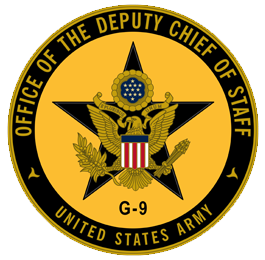Soldiers Are the Army’s Professional Athletes
A conversation with Olympic runner, actress, filmmaker, and writer Alexi Pappas
Chief of Staff of the Army Gen. James McConville, has said that our Soldiers are like professional athletes and the Army wants to give them all the capability they need to stay on the field and play their position. Thus, just like elite athletes, Soldiers need to take care of themselves both physically and mentally to perform at their peak.
“There truly is so much overlap between the world of Olympic athletics and the military. We are all elite athletes whose mission it is to push ourselves beyond our limits to achieve extraordinary goals,” said Alexi Pappas, the Olympic runner, actress, filmmaker and writer, when she joined a world-wide audience for the Army Resilience Directorate’s monthly webinar. Pappas, who recently published her memoir, “Bravey,” shared a message of resilience and the significance of treating the brain like a body part.
After competing in the 2016 Olympic Summer Games, Pappas sought treatment to deal with the severe depression that had plagued her for months. When her doctor told her to think about her depression like a scratch on her brain, Pappas had an epiphany: if her brain could get injured, then it could heal too.
Pappas began approaching her mental health the same way she does her physical health by adopting an elite athlete’s mindset, which is central to peak performance. “The brain is a body part like any other, and mental health injuries like depression and anxiety can heal over time, just like any other injury,” she said.
For elite athletes, prehab is just as important as rehab, according to Pappas. With that realization, she changed the way she approached her mental health treatment. For Pappas, going to therapy was like going to practice, seeing her doctor was like seeing her coach. She urged attendees to do the same.
“We know how to take care of our bodies, Pappas said, “but taking care of our minds is just as important.” She noted it would be helpful if this outlook was integrated into the culture of elite athletes and the military.
Comparing squad leaders to her coaches and Soldiers to fellow teammates, she underscored how vital it is for leaders to know their Soldiers, for teammates to have the courage to address difficult issues, and for everyone to provide support once an individual seeks treatment. It also requires that we talk about mental health the same way we talk about physical health. “If we have a teammate who tears an ACL, would we visit them at home a week later and tell them to snap out of it or man up?” Pappas asked. “That's because culturally, we understand that there's a healing process associated with physical injuries. And it's important for everyone to understand that it's the same with mental health injuries too. They're just injuries.”
Pappas also shared the importance of choosing optimism because it’s “not about deciding to suddenly be happy. You can't just choose to be happy. Instead, it's about understanding that you can heal.’”
ARD offers a variety of performance and resilience training from cultivating optimism to building confidence, learning mindfulness, attention control, goal setting and much more, to help Soldiers perform consistently and to their full potential regardless of of circumstances.
“In time Soldiers, elite athletes, and everyone for that matter, will be just as vigilant in caring for their mental health as their physical health,” Pappas said. “We all want to perform our best and there is nothing weak about that.”
Photo: Courtesy of Alexi Pappas

